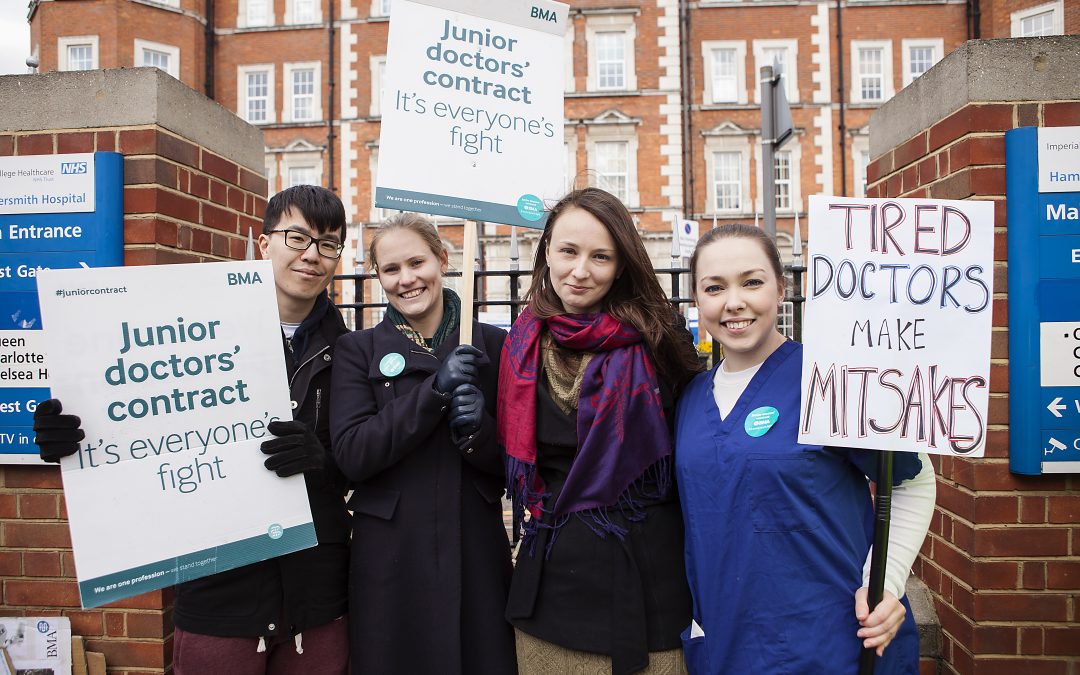
Safe working limits for GPs
The GP workforce is experiencing extreme pressure, exacerbated by staff shortages and unprecedented demand from patients with increasingly complex needs. Long working hours and excessive workload are leading to stress, burnout, and low morale. These factors impact on the quality of patient care and increase the risk of errors in decision-making.
April is Stress Awareness Month, so we take this opportunity to look at how practices and GPs can prioritise care to deliver health services within safe working limits.
Pressure on GP services is unsustainable
The winter of 2022/23 has seen exceptional demand for GP services. Many surgeries have struggled to cope with the deluge of patients requiring same-day appointments, leaving some practices with no choice but to cap the number of urgent appointments.
Based on its ‘Fit for the Future: GP Pressures Report 2023’ report, the Royal College of General Practice (RCGP) has warned that one in four practices is at risk of closing, with “unmanageable workload and workforce pressures fuelling an exodus of fully qualified GPs”.
Clearly, support is needed to retain the practice workforce and manage ongoing demand in a way that prioritises safety and wellbeing of both staff and patients.
What does a safe workload look like?
The British Medical Association (BMA) report on ‘Workload Control in General Practice’ highlights the importance of agreeing individual limits for safe practice, which will depend on the practice setting, contractual status and preferences of the individual, as well as the complexity of patient needs.
In its guide to ‘Safe working in general practice’, the BMA recommends that:
- A safe level of patient contacts for a GP is not more than 25 per day. However, the number of daily contacts considered ‘safe’ may vary according to the above factors.
- Practices should move to 15-minute appointments. This is in line with evidence on quality of care, reduces the need for repeat consultations and maintains patient satisfaction.
- A standard GP session lasting 4 hours 10 minutes should include a maximum of 3 hours with patients as well as adequate rest breaks to avoid risk of harm to patients and clinicians.
- Practices should consider closing their practice list if they are at the limit of their capacity to provide safe care.
Strategies to promote safe working limits
The BMA states, “The present crisis is so severe that we recommend practices take urgent action to preserve patient care and protect the wellbeing of their staff.” This must be done within the constraints of the general medical services (GMS) contract.
Strategies the BMA recommends include:
Manage same-day demand. The BMA strongly recommends moving away from a duty doctor system with uncapped demand. Triage by appropriately-trained staff should prioritise care according to clinical need, and when the daily safe limit on capacity is exceeded, patients should be redirected to other services or placed on a waiting list. If a waiting list is used for non-urgent care, patients should be given instructions about what to do if their clinical condition deteriorates.
When demand outstrips capacity, patients may be redirected to services including NHS 111, urgent treatment centres, extended access hubs, walk-in clinics, clinical pharmacy consultation services, or ARRS staff. Emergency or urgent problems may be directed to emergency departments or 999.
Importantly, the GMS contract for 2023/24, which is being imposed from April 2023, states that “patients should be offered an assessment of need, or signposted to an appropriate service, at first contact with the practice. Practices will therefore no longer be able to request that patients contact the practice at a later time.”
Prioritise core GP functions. The BMA urges practices to focus on providing core GP services within the GMS contract and to cease doing unfunded non-core work. Practices are not obliged to undertake non-contracted work on behalf of secondary care providers and other agencies. Such requests may be pushed back and the Integrated Care Board notified (the BMA provides template letters).
In addition, practices are advised to consider whether the requirements of the Primary Care Network Directed Enhanced Service (PCN DES) outweigh the benefits. Practices may tell their Integrated Care System that they wish to discontinue the DES between 1 and 30 April 2023 or whenever there is a change to the DES.
The BMA says: “It is likely to be the case that practices provide fewer services to their patients in order to preserve the central core services of general practice.”
Record data on all patient contacts and monitor working hours. Accurate data is essential for effectively managing workloads. The BMA encourages practices to account for all patient contact within their appointment books, so that NHS England data reflects reality. Once recognised, excessive work demands can be prioritised and appropriately managed or delegated.
Please contact us at Medical Defense Society if excessive workload in your practice may be affecting your wellbeing or compromising the safety of your patients. We provide members with expert medico-legal advice 24/7.


Recent Comments